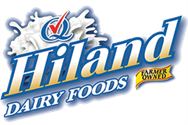Woo Pig Sooie!
We love pigs at the Little Rock Zoo! We're squealing with joy, because it's almost National Pig Day!
Come to the Zoo for National Pig Day on March 1st and get your oink- on!! National Pig Day is an event to honor the pig and was officially established in 1972 by Mary Lynen Rave and Ellen Stanley. National Pig Day promotes awareness about pigs and highlights them as man’s most intelligent and domesticated livestock species.
Schedule of Events (included in regular admission):
10:00-12:00: Awareness table near Red River Hogs, pig-themed exploration station, and interactive activities
1:30: Keeper chat @ Red River Hog exhibit
1:45: Keeper chat @ Peccary exhibit
More about pigs close to the hearts of Arkansans, the razorback:
- A razorback is a Eurasian wild boar. In 1910 it became the mascot of the University of Arkansas after being used as a nickname to describe the tenacious football team of 1909.
- Characteristics of a razorback:
- High, sharp-ridged back
- Fearless
- Loyal
- How razorbacks got here: In the 1500s, settlers in colonial America brought wild Eurasian boars and domestic pigs to their new land to be used as a food resource. The domesticated pigs were free-range and began to hybridize, or intermix, with the wild boars and the population exploded. A distinct species emerged, known to the region as a razorback due to its characteristic ridge of raised hair along its back.
- Not Always Razorbacks: The Arkansas Razorbacks were known as the Cardinals until Arkansas football coach Hugo Bezdek referred to his players as "a wild band of Razorback hogs" after a big win in 1909 against LSU. In 1910, the students voted for the mascot to become the razorback.
- Ecological benefit of wild pigs:
- Ecosystem engineers
- Seed dispersal
- Help aerate the soil and create water pits for rain to accumulate due to their excessive digging and rooting
- Improve soil fertility and structure
- Create paths for other animals by clearing away vegetation
- Clean up crew
- Sometimes eats carrion and decaying flesh, preventing the spread of disease
- Removes overgrown vegetation
- Ecosystem engineers
* Please confirm directly with the promoter or box office to ensure event details have not changed.
Stay Informed!
Enewsletter Sign-Up
Sign up to stay up-to-date on the latest zoo news, upcoming events and deals.



